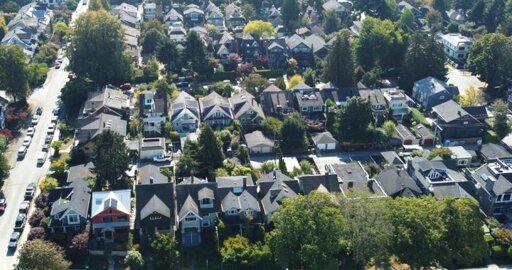That’s a good premier!
Karen Finnan with the Kitsilano Coalition for Children and Family Safety said they are not opposed to having supportive housing in the neighbourhood.
Can’t make this up.
Fuck yeah, I’ve been saying governments just need to ignore the minority of NIMBYs at this point to actually improve things
Lottery for poor people, if it even happens.
The important thing is that you can stay mad at any amount of good news. Sometimes you might have to work hard at it, but I believe that you can, in the brightest light, find a dark shadow to be pissy about.
Good job. /s
How is giving people hope, then not actually delivering anything considered good news?
Go ask New Yorkers how social housing is working out. Literally 1000 applications per unit that gets built.
Hey, keep it up. Getting mad about your imagined version of stuff before it even happens is pretty much peak internet.
This shit has been tried in dozens of cities worldwide, and it’s never helped. Why would it work here?
What’s your solution? If you have none, STFU and let the grown-ups do their work.
Land value taxes high enough to completely remove all income taxes.
remove all income taxes
Ah. I smell conservative scambait.
That’s a frankly terrible idea, especially for lower income people.
Income taxes are bracketed based on income, with significant amount of deductions and exceptions for things like disability, having a family, retirement savings, education, etc.
Taxing land, especially rental property, means that the tax landlords pay is just passed down to the renter which makes it more difficult for the individual to then assess how much tax they have actually paid and are responsible for. If we then say the individual is not responsible for paying any of that property tax, then the government will be obligated to refund those tax payments to the individual, which means the government is losing that revenue. If the tax is not refunded, then the individual is going to be responsible for a much higher tax burden than the current system.
None of this actually creates new housing, it just creates a new opportunity for the wealthy to play their money shell game.
Viable solutions include:
- Build housing for low-income people
- Create new tax schemes to tax VACANT property
- Build housing for low-income people
- Create legislation to ensure proper classification of housing vs hotels to eliminate the use of empty housing for AirBNB type rentals - Note, this should be in combination with the above, if a person wants to rent out a home/apartment they live in for a weekend while they’re not home, that should still be allowed.
- Build housing for low-income people
- Implement/Strengthen rent control legislation so that people are not priced out of their home due to greed-driven rent increases
- Build housing for low-income people
- Create legislation to reduce or eliminate the impact of NIMBY-ism (which is why this particular building in question has not yet been built)
- Build housing for low-income people
- Create legislation to allow eminent-domain type buyback of unused/vacant property from corporations if they have not shown any progress in developing that land for their business (i.e. if they have pulled permits, submitted plans, or are otherwise showing consistent steps toward using the property, then it’s fine. If they just bought it to sit on, then ownership transfers to the municipality and the company is reimbursed at the standard rate based on acreage)
- Build housing for low-income people
- Improve public transit and reduce the number of personal vehicles, subsequently reducing the amount of surface parking required in urban areas. Use this land for parks and recreation space (reduces demand for single-family homes in urban areas)
- Build housing for low-income people
Not sure if I mentioned:
- Build housing for low-income people
It often helps. The best example is Vienna.
Vienna has decade long waitlists, you have to live in the city to get on the waitlist in the first place, AND private housing is still expensive.
The only people it works for is the people who already have a unit, and not even many of those because once you get one, you can’t move if for example you have a kid and need more space.
https://policyoptions.irpp.org/magazines/march-2024/vienna-housing-lessons/
People keep using it as an example, but it has failed at this policy too.
Vienna has decade long waitlists
Your own source disagrees with you:
At last reading, some 25,000 Viennese were on waiting lists with approval times varying between two months and two years.
And the conclusion is:
Vienna’s model does not rescind the law of supply and demand. Vienna was able to keep costs low for many years in large part because demand remained low.
Which I fully agree with. As the report shows, in recent years Vienna has also failed to keep up with demand. Vienna isn’t perfect, but if their model is actually followed, and supply scales with demand, then costs can be low.
it’s never helped
This is what we call Beggaring the Question.
This is what we call stupidity. Trying the same thing and expecting different results.
Besides decommodification, the other end goal here is enough affordable houses that it’s no longer a lottery and simply open as an option to people in general.
There are already more bedrooms in Canada than people, and the fact that a lot of people(couples and young children) share bedrooms on top of that means that there isnt actually a housing shortage. The problem is the housing isn’t allocated properly.
If people are allowed to want an unlimited amount of housing, then there can never be an end to the “shortage” and you’re just chasing moving goalposts.
Well, I’m in favour of decommodification which would totally end that problem. The problem is that I’m not hearing that from any of our politicians…






